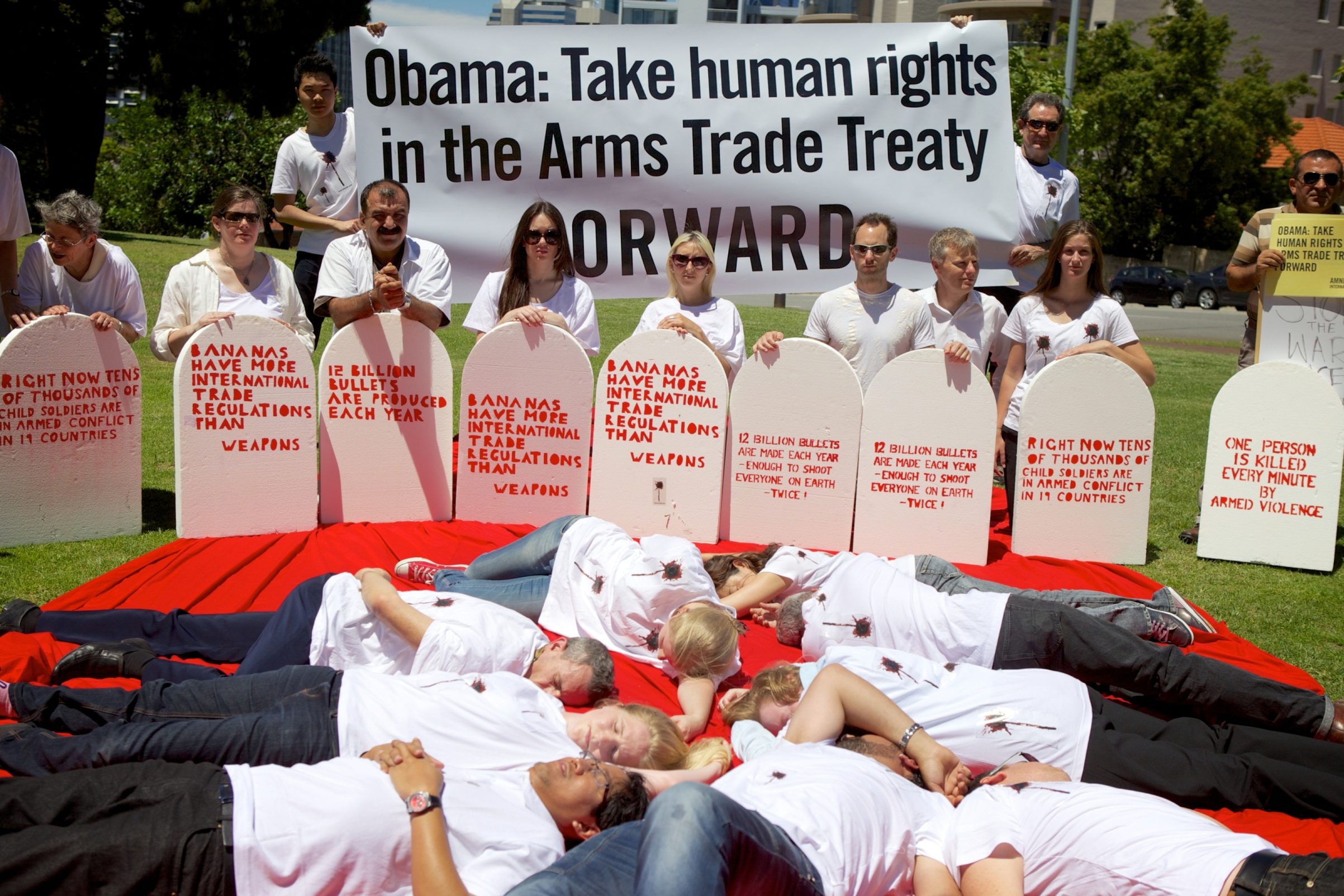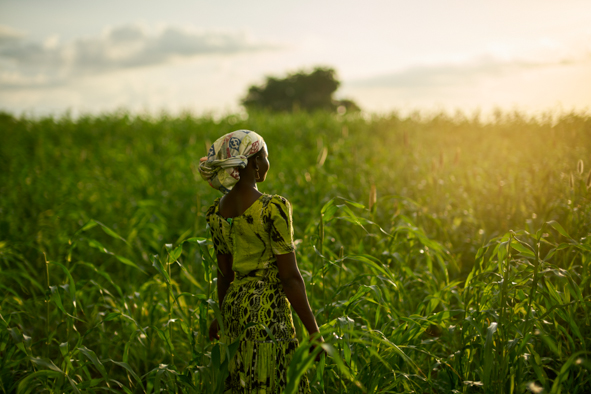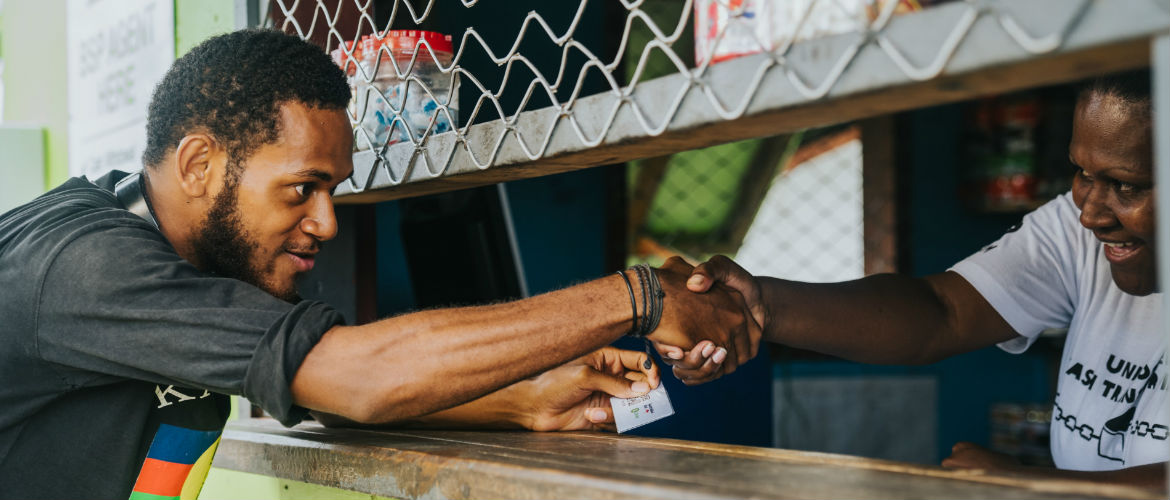With a visit to Perth last week by US Secretary of State Hillary Clinton and Secretary of Defense Leon Panetta’s for the Australia United States Ministerial Consultations (AUSMIN) defence talks, Oxfam, Amnesty, Act for Peace, Action Aid and Medical Association for the Prevention of War seized the opportunity to call on the US to help secure a strong and effective Arms Trade Treaty in 2013.
Wearing bullet-holed T-shirts and surrounded by tombstones, Arms Trade Treaty supporters lay on a carpet of blood-red fabric as a tragic reminder of the millions who are killed, injured, raped or displaced from their homes by violence fueled by the irresponsible and poorly regulated international arms trade.
Since 2003, humanitarian and human rights agencies including Oxfam and Amnesty have been calling for a legally binding Arms Trade Treaty to prevent arms from ending up in the hands of human rights abusers and repressive governments.
United Nations negotiations for an Arms Trade Treaty made significant progress in July 2012 but failed to achieve an outcome after the USA and several other countries requested more time. However, 157 countries including the United States recently supported a resumption of negotiations in March 2013.
The US has previously opposed the strong controls for ammunition in the treaty and argued for certain exceptions allowing arms transfers to continue even if there is a high risk of misuse occurring, loopholes that were reflected in the most recent draft of the Treaty from July 2012.
However with President Obama’s renewed support for the Arms Trade Treaty next year there is renewed hope that the US will use this once in a generation opportunity to close some of the loopholes and push for the strongest possible Arms Trade Treaty, making a lasting contribution to world peace.
The Australian government also played an instrumental role in securing the resumption of talks for an Arms Trade Treaty next year and we urge them, along with the US, to continue to take a leadership role in the upcoming March negotiations and work hard to fix the weaknesses in the current draft Treaty to ensure irresponsible deals cannot continue to slip through the net.
The final United Nations Conference on the Arms Trade Treaty will be held in New York from 18-28 March 2013.
Find out more about Oxfam’s work on securing a global Arms Trade Treaty.
by Oxfam Western Australia Campaign Coordinator Paddy Cullen


 Doris*, daughter, 5; Pamila*, 2. Christina grows maize and she was shown how to make compost as part of the CRAFS (Climate Resilient Agriculture and Food Systems) programme.
Doris*, daughter, 5; Pamila*, 2. Christina grows maize and she was shown how to make compost as part of the CRAFS (Climate Resilient Agriculture and Food Systems) programme.
